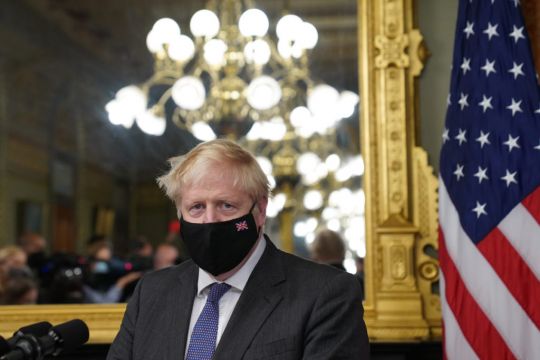Whether it was a bridge or a tunnel that would have connected Northern Ireland and Scotland, one thing is now clear: Boris Johnson has abandoned plans for it to go ahead any time soon.
The British prime minister, a lover of grand infrastructure projects, heavily downplayed the prospects that the concept would ever get off the ground, downgrading it to merely an “ambition”.
Mr Johnson faced some derision after it emerged in March that the feasibility of the project — potentially costing £20 billion (€23 billion) — was being assessed.
Earlier this month it emerged that he had faced significant opposition from UK chancellor Rishi Sunak as they negotiated on spending ahead of his budget next month.
Speaking to reporters as he travelled by Amtrak train between Washington and New York, Mr Johnson hinted that the HS2 railway network would still go ahead.
He added: “What I would say perhaps about the tunnel/bridge is perhaps although it remains an ambition, it’s not the most immediate.
“It will be delivered substantially after the rest of the programme that you have just described.”
Dominic Cummings, the prime minister’s hostile former adviser, once called it “the world’s most stupid tunnel”.
Experts warned that the depth of the Irish Sea and the presence of dumped munitions in Beaufort’s Dyke would cause problems.
The distance from Larne to Portpatrick, one of the most likely routes for a bridge, is around 28 miles.
In November 2018, Mr Johnson said: “The problem is not the undersea Beaufort’s Dyke or lack of funds. The problem is an absence of political will.”
Some experts put the cost at up to £20 billion, but Mr Johnson has previously estimated it would “only cost about £15 billion”.
Abandoning the project so early could end up saving a significant amount of taxpayers’ money.
The controversial Garden Bridge over the Thames that Mr Johnson backed while London mayor was scrapped after receiving £43 million of public investment.
The Financial Times reported earlier this month that UK government officials briefed on spending negotiations called the Irish Sea project “dead” as he tries to bring spending under control.







